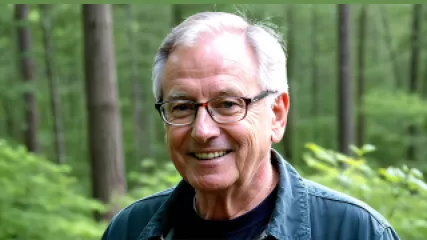Powerful Strategies for Suicide Prevention: An Expert Interview
Powerful Strategies for Suicide Prevention: An Expert Interview with Loyd Campbell
Suicide is a devastating issue that touches far too many lives, leaving a profound impact on individuals, families, and communities. In this powerful interview, we sit down with Loyd Campbell, a leading expert in the field of suicide prevention, to explore effective strategies and resources for supporting those in crisis.
Loyd Campbell is a licensed clinical psychologist with over 20 years of experience working in mental health and crisis intervention. He has dedicated his career to developing and implementing innovative approaches to suicide prevention, with a particular focus on expanding access to mental health services and fostering community-based support networks.
The Importance of Understanding Suicide Risk Factors
Suicide prevention begins with understanding the risk factors that can contribute to suicidal ideation and behavior. Loyd explains, "Suicide is a complex issue with no single cause, but there are certain factors that can increase an individual's vulnerability, such as mental health conditions, substance abuse, traumatic life events, and a lack of social support. By recognizing these risk factors and addressing them proactively, we can take significant steps towards reducing the tragedy of suicide."
One of the critical risk factors Loyd emphasizes is the prevalence of mental health issues, particularly depression and anxiety. "Untreated or unmanaged mental health conditions are a major contributor to suicide risk. It's essential that we destigmatize mental health and make it easier for people to access the support and treatment they need."
Developing a Comprehensive Suicide Prevention Strategy
Effective suicide prevention requires a multifaceted approach, as Loyd explains. "Suicide prevention is not a one-size-fits-all solution. It requires a comprehensive strategy that addresses the individual, community, and societal factors that can contribute to suicidal thoughts and behaviors."
At the individual level, Loyd stresses the importance of early intervention and access to mental health resources. "Providing individuals in crisis with immediate support, counseling, and connections to ongoing care can make a crucial difference. This might involve crisis hotlines, online resources, or referrals to mental health professionals who can offer personalized treatment and guidance."
Additionally, Loyd emphasizes the role of community-based initiatives in suicide prevention. "Building strong, supportive communities where people feel connected, valued, and empowered can be a powerful buffer against suicide risk. This might include support groups, peer-to-peer programs, and community education efforts that destigmatize mental health and encourage open conversations about suicide prevention."
The Transformative Power of Online Counseling
One of the innovative approaches Loyd has championed in recent years is the expansion of online counseling services. "The COVID-19 pandemic has highlighted the critical need for accessible, flexible mental health support. Online counseling has emerged as a powerful tool for reaching individuals who may not have access to in-person services or feel comfortable seeking help in traditional settings."
Loyd explains that online counseling can provide a range of benefits for those struggling with suicidal thoughts or mental health challenges. "Online counseling offers privacy, convenience, and the ability to connect with licensed professionals from the comfort of one's own home. It can also help bridge gaps in rural or underserved areas where access to mental health services may be limited."
Moreover, Loyd notes that online counseling can be particularly beneficial for young people. "Younger generations have grown up in the digital age and often feel more comfortable seeking support through online platforms. By meeting them where they are, we can create more opportunities for early intervention and prevention."
The Power of Peer Support and Community Engagement
In addition to professional mental health services, Loyd emphasizes the vital role of peer support and community engagement in suicide prevention efforts. "Connecting individuals who have experienced suicidal thoughts or behaviors with peer mentors or support groups can be incredibly powerful. Knowing that you're not alone, and that others have been through similar challenges, can provide a sense of hope and solidarity that is essential for recovery."
Loyd also highlights the importance of community education and awareness campaigns. "Suicide prevention is not just about helping individuals in crisis; it's also about creating a cultural shift where mental health is destigmatized, and everyone feels empowered to be part of the solution. By educating the public about suicide warning signs, effective intervention strategies, and available resources, we can empower people to support their loved ones and build more resilient communities."
The Path Forward: Collaboration, Innovation, and Hope
As Loyd reflects on the challenges and progress in the field of suicide prevention, he emphasizes the critical need for continued collaboration and innovation. "Suicide prevention is not the work of any single individual or organization; it requires a collective effort from mental health professionals, policymakers, educators, community leaders, and everyday citizens. By working together, sharing best practices, and continuously exploring new approaches, we can make significant strides in reducing the devastating impact of suicide."
Ultimately, Loyd's message is one of hope and empowerment. "Suicide is a complex and heartbreaking issue, but it is not an inevitable outcome. With the right support, resources, and community engagement, we can prevent tragic losses and help individuals in crisis find the path to healing and resilience. By embracing a holistic, collaborative approach to suicide prevention, we can create a world where everyone feels valued, supported, and empowered to choose life."
Key Takeaways:
- Suicide prevention requires understanding and addressing the complex risk factors, including mental health conditions, substance abuse, and lack of social support.
- Effective suicide prevention strategies must be comprehensive, addressing the individual, community, and societal factors that contribute to suicidal thoughts and behaviors.
- Online counseling and mental health services can play a crucial role in expanding access to support and resources, particularly for underserved populations and younger generations.
- Peer support, community education, and collaborative efforts are essential for destigmatizing mental health, empowering individuals, and building more resilient communities.
- With a collective commitment to innovation, compassion, and hope, we can make significant progress in preventing the tragedy of suicide and supporting those in crisis.
If you or someone you know is struggling with suicidal thoughts, please remember that you are not alone. There are resources and support available, including:
- National Suicide Prevention Lifeline: 1-800-273-8255
- Crisis Text Line: Text HOME to 741741
- Online Counseling Services: [Insert relevant online counseling service]
By seeking help and connecting with supportive resources, you can take the first steps towards healing, resilience, and a brighter future.






